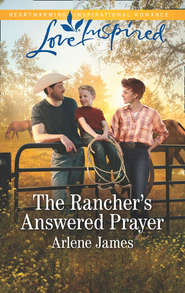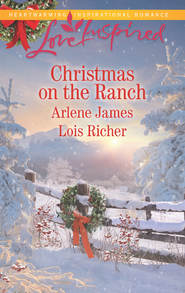По всем вопросам обращайтесь на: info@litportal.ru
(©) 2003-2024.
✖
The Perfect Wedding
Автор
Год написания книги
2019
Настройки чтения
Размер шрифта
Высота строк
Поля
She began to write in the proper space. “That’s C-o-r-l-y?”
“L-e-y.”
She penned in the final letters. “What size wedding are we talking about, Mr. Corley? How many guests do you expect will attend?”
He shrugged. “I don’t know. Quite a few.”
She flipped the notebook pages until she came to the one she wanted, then she laid the pen in the fold of the book and turned the book to face him. “I suggest that you begin making a list, Mr. Corley. Take a few days to do it. Be sure to get the bride’s input. It need not be complete at this point, but as nearly so as possible. Then we’ll simply count, and that will give us a ballpark figure to begin planning with.”
He nodded. “All right. What else?”
She sat back and folded her hands, elbows resting on the arms of the chair. “Actually, Mr. Corley, there is a great deal else. Weddings are complicated affairs customarily planned by the bride and her mother.”
A spasm of irritation passed over his face. “Does it have to be the bride’s mother?”
She lifted her hands in an expansive gesture. “No, of course not. But the bride certainly should be involved.”
He nodded and slid his feet back, leaning forward. “Excuse me.” Without another word he stood and walked out.
Layne closed her mouth and shook her head. Now she’d seen everything. After eight years in this business, which she had started right out of college, she’d encountered just about every kind of customer possible, those who knew what they wanted no matter how wild or silly, those who hadn’t the vaguest idea, those who could afford just about anything, those who couldn’t afford the license, those floating with excitement, those dismayed to the point of tears. But Rod Corley was a first. She didn’t have a category in which she could fit him—yet. She pressed her hands together and lifted her eyes heavenward. “I don’t know what’s going on here, Lord, but I’ve the feeling it’s nothing I’ve dealt with before, so I really need Your help this time. I’m trusting You to give me everything I need to serve Rod Corley and his bride. And thanks for the help. Amen.”
Just when she had decided he wasn’t going to return, the chime on the front door sounded, followed by the muted clump of booted feet on carpet. She swiveled to the side and put on a welcoming smile. Rod Corley stood in the arched doorway of the room, a girl with a baby in her arms at his side. Layne felt the smile dying on her face and quickly bolstered it, coming to her feet. This could not be his bride! She was hardly more than a child herself. Small, waiflike, delicate to the point of frailty. The young mother had a short, neat cap of fine, dark hair that swept in wisps toward a pixieish face overwhelmed by large, dark, frightened eyes. Layne’s first reaction was dismay, her second sympathy. She extended her arm in an oddly protective gesture of greeting.
Rod Corley began the introductions. “Miss, or is it Mrs. Harington?”
“Miss.”
“Miss Harington, this is Dedrah March.”
March. The name sounded vaguely familiar. Oh, no. She remembered a snippet of gossip she had overheard many months earlier. Before she could check them, her eyes went to the little one perched on Dedrah March’s hip. The child gazed back at her with her mother’s large, dark eyes, but her hair was both lighter and thicker, very nearly the color of Rod Corley’s. Layne felt a sharp sense of disappointment. What kind of man would allow a teenaged girl to bear his child out of wedlock, then show up here wanting to plan a “proper” wedding? It didn’t make sense. But it wasn’t her job to make sense of such things. She forced the smile back onto her face and decided how she would address the girl.
“Dedrah, I’m Layne. Won’t you have a seat?”
The girl nodded and hitched the baby up higher on her hip before crossing to the chair recently vacated by Rod Corley. Layne pulled her own chair around for Rod and another away from the wall for herself, noting that he waited until both women were seated before folding his tall frame into the center chair. Layne pushed the notebook resting on the table closer toward Dedrah. Immediately the baby reached for the ink pen. Dedrah gently pushed her hand away, saying, “No, Heather, you don’t need that.”
Heather put her hand in her mouth and shrank against her mother, her cheek pressed to the swell of Dedrah’s small breast. Dedrah stroked the baby’s silky hair and began to rock gently. Layne felt a stab of envy. She was at least a decade older than this girl, and weddings were her business, but somehow marriage and motherhood had eluded her. Reminding herself that God had a purpose for everything, she forced her mind to form the necessary question and began.
“Now then, Dedrah, what sort of wedding did you have in mind?”
The girl shrugged. “I don’t know.”
She certainly didn’t sound very excited about the pending marriage, which made this situation all the more unlikely. Layne tried another approach. “Mr. Corley said something about a ‘proper’ wedding. Does that mean a church wedding with all the trimmings?”
“I suppose,” Dedrah mumbled.
Layne glanced at Rod Corley, who nodded. She then took a deep breath. “All right, a church wedding. Did you have a church in mind?”
“No,” Dedrah said carefully. “There’s this little church in Davis where I used to go, but I suppose that’s too far away.”
Rod agreed. “Something here in Duncan would be better. I’ve attended a local church, but it’s too small.”
“I don’t see why,” Dedrah said. “My whole family can’t add up to more than twenty, and there’s just you on the other side.”
“There’s just me and a couple hundred other people on the other side,” he said. “They may not be family, Dedrah, but they’re important.”
Dedrah sighed and dropped her gaze. Obviously there was some disagreement on the subject. In fact, they seemed to have decided virtually nothing. Layne swallowed the question already on her tongue, reminding herself that their relationship was none of her business, and formed another.
“What date did you have in mind?”
Dedrah looked at Rod, and Rod looked at Layne. “How soon could you get it together?”
Layne pressed both hands against the tabletop as if pressing down her exasperation. “Mr. Corley, I have to know what I’m putting together before I can answer that.”
He shifted in his seat, irritation flashing across his face again. “Well, figure a couple hundred people,” he said flatly, “and a church big enough to hold them.”
She decided she was due some irritation of her own. “Two hundred people constitute a fairly large wedding, Mr. Corley,” she pointed out. “Will all two hundred be expected at the reception, and what sort of reception are you planning? Will you be serving finger sandwiches or five courses, punch or champagne? Are you expecting out-of-town guests? Will you need special transportation? How many will be in the wedding party? A wedding of that size is usually formal, but how formal depends on a number of things. For instance, will there be a theme? What colors were you thinking of? Have you discussed music, readings, traditions? Who will sing, play, conduct? And what about lighting?”
He held up a hand to silence her. “If I knew what was involved, Miss Harington, I wouldn’t be here.”
“I’m just trying to give you an idea of what goes into some people’s version of a ‘proper’ wedding.”
“All right. OK,” Rod said. “We have to start somewhere. So where would you advise?”
Layne got a grip on herself. “We could start,” she said thoughtfully, “with the wedding gown. That would give me some idea of how formal an affair you want and how much money you expect to spend.”
“Money’s no object,” he said quickly, but she had to wonder if he really knew what kind of money they could be talking about. The gown alone could command thousands, but somehow she didn’t think that was Dedrah March’s style—or Rod Corley’s, for that matter.
“Let me show you a few things,” she suggested, looking pointedly at Dedrah to let the girl know that she was interested in her opinion. The girl nodded, and Corley pushed his chair around to her side, so that both of them faced Layne. She walked to a pair of wide, mirrored doors and opened them to reveal a large room lined with hanging gowns and a spacious freestanding changing booth.
Quickly she went from one rack to another, extracting half a dozen dresses in various styles and price ranges. These she placed on a rolling rack, which she wheeled into the consultation area. There, she took them down one by one and held them out for the couple’s inspection, beginning with a simply tailored street-length sheath costing less than two hundred dollars. Rod shook his head sternly at this, and she smiled to herself. Well, it was progress, however slight. The next dress, tea length with a tulip skirt sewn onto a fitted, dropped-waist bodice received the same reception from him, as did the ankle-length princess-style with a demure sweetheart neckline and a sweep train. Dedrah March simply stared, saying nothing, her expression unreadable. When Layne produced the fourth dress, a floor-length traditional gown with a wedding ring collar and fitted bodice trimmed with lace, its full skirt elongated into a court train, Rod Corley nodded with satisfaction.
“That’s more like it.”
Dedrah glanced down at the little one in her lap, who was mumbling quietly around her fingers. She said nothing about the dress, but her frown indicated displeasure. Layne bit back another inappropriate question and looked to Rod Corley for guidance. His glance followed her own, and his mouth turned down at the corners. When he once again met her gaze, his irritation was evident, but he nodded for her to go on. Reluctantly Layne took another dress from the rack and presented it with a flourish.
“This one is a good deal more formal,” she said. “The fitted bodice with portrait neckline and Basque waist is appliquéd in lace with seed pearls scattered throughout, as is the hem of the bouffant skirt. The chapel train is separate and extends about four feet from the waist. The cuffs of the Gibson sleeve are four inches long and also appliquéd. The dress runs about twelve hundred dollars, plus alterations.”
Both she and Rod looked to Dedrah, whose frown was firmly fixed. Layne rehung the gown and took down the final one. It was considerably more ornate, satin and organza literally encrusted in lace, pearls and frosted sequins. There were bows, some small and others enormous enough to serve as a bustle, a keyhole back, a skirt so full it was both gathered and pleated at the natural waist, leg-of-mutton sleeves, jewel neckline and a detachable cathedral train some three yards in length. At five thousand dollars, it was the most expensive gown in the house. Yet Dedrah’s gaze was almost bland.
“It’s very pretty,” she said, then shook her head. Rod Corley pitched forward in irritation, causing Layne to hastily intercede.
“These are just examples of the different types of gowns,” she explained. “There are many, many styles to choose from. If I could just get an idea of what type of dress you’re interested in…”
Again Dedrah turned those big, bland eyes up at her and shrugged. Rod Corley smacked his hat against his thigh in frustration, grinding his teeth.
“She won’t choose,” he said. “I knew I should’ve made Sammy come!”
At that Dedrah clamped her teeth down onto her bottom lip, bowed her head and began to cry. The baby, sensing her mother’s distress, squirmed and babbled loudly. Layne realized that soon they would both be in tears, thanks to Rod Corley, if she didn’t do something quickly. She shot him a look that told him just who she blamed for the whole situation and watched his mouth drop open, but she had other things to think about at the moment. Taking a deep breath, she sent up a quick, silent prayer for patience and guidance, then threw the dress over the rack, stepped forward and lifted the baby off Dedrah March’s lap.











